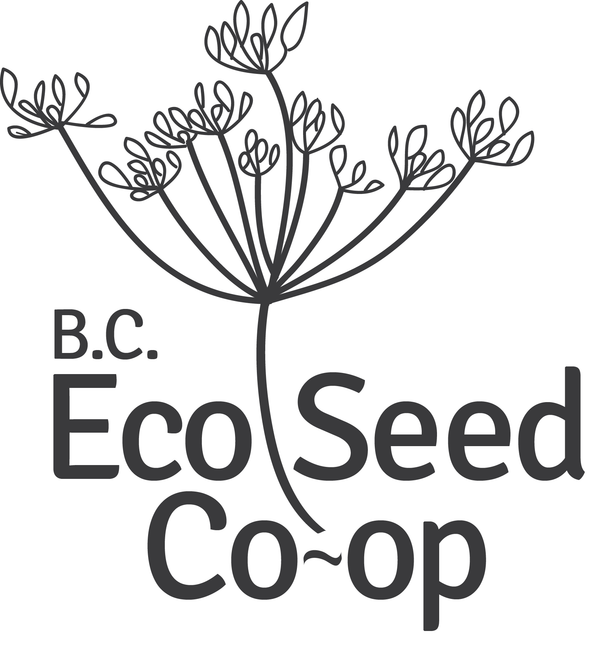At BC Eco Seed Co-op, our mission is to increase the quantity and improve the quality of ecological and organic seed grown in BC. All seed from the BC Eco Seed Co-op is open pollinated, untreated, not genetically modified and ecologically-grown; additionally, many members are certified organic or transitioning to become certified organic. All of our seeds are grown by us on our farms across the province.
We have signed the Safe Seed Pledge, joining almost 100 other seed sellers in committing to keep our seed stock free of GE/GMO products.
"Genetically engineered seeds and plants are no longer limited to commercial growers and commodity crops. They are invading our gardens and there has been zero safety testing. We now have the GMO purple Empress tomato and the Firefly glow-in-the-dark petunia. Many more are in the works. Neither the purple tomato nor the glow-in-the-dark petunia has been safety tested or undergone metabolomic testing for changes caused by the genetic engineering process. What will a GMO petunia created with an added fungus gene do to a pollinator who feasts on its pollen? No one knows.
Genetic engineering has been found to alter the biochemical profile of plants created using it. As such, each and every GMO should be required to undergo thorough testing before it hits our gardens, our food supply and our environment." - GMO Free USA
The pledge
Seeds are essential for the provision of healthy food, our well-being, and that of our environment and planet. We must protect the diversity and genetic integrity of our seeds to provide the foundation for a stable, safe food supply for us and for generations to come.
The mechanical alteration of genetic material outside of natural reproductive methods within or between genera, families or kingdoms, poses great biological risks as well as environmental, economic, political, and cultural threats.
New methods of genetic engineering such as CRISPR and other genome editing or gene silencing technologies are touted as precise and safe by the biotech industry. Independent studies, however, document the same risks of off-target and unintended changes to the organism as older genetic engineering methods. Yet, the U.S. and other governments have declined to regulate organisms produced with newer genetic engineering technologies (also known as New Genomic Techniques or NGTs) and no safety testing is required prior to their release.
An ever-increasing number of organisms are being genetically altered in labs and are quietly making their way into our gardens, farms, and food supply. The increased pace of commercialization of whole foods that are directly eaten by consumers such as salad greens, tomatoes, potatoes, mushrooms, pineapples, apples, bananas, and chestnuts, as well as flowers such as pollinator-favorite petunias, increases the urgency of protecting the genetic integrity of our seeds.
We wish to support agricultural progress that leads to healthier soils, genetically stable and diverse agricultural ecosystems, and ultimately people and communities.
For the benefit of all farmers, gardeners, and consumers, we pledge that we do not knowingly buy, sell, or trade genetically engineered seeds or plants created using transgenic, cisgenic, RNAi, CRISPR/cas9 or any other genetic engineering technology.
Learn more about the Safe Seed Pledge: https://www.safeseedpledge.org/

